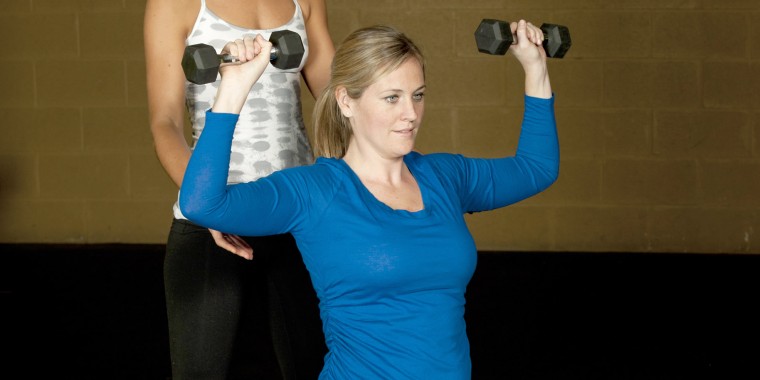
Pre-Natal Fitness
There will be some days in your pregnancy when just getting out of bed can be a challenge so exercise might seem out of the question. But staying active has lots of benefits both during your pregnancy and when it comes to giving birth. Exercise promotes muscle tone, strength and endurance and can help you carry the weight you gain during pregnancy, prepare you for the physical stress of labour, and make it easier to get back into shape after the baby is born. Being active during your pregnancy can also reduce the physical discomforts of backache, constipation, fatigue and swelling; avoid stomach muscle separation from a weak core, improve your mood and self-image and even help you sleep more soundly.
Exercise selection and intensity needs to be adapted for each trimester to allow for physiological and anatomical changes. In the Second Trimester you need to eliminate exercises that are performed while flat on your back or standing in one place for long periods, as both can reduce blood flow to the body. This is why it is important to ask help from a specialist in this field.
Here are just some of the benefits of exercise through pregnancy:
- Improved circulation (may decrease risk of varicose veins)
- Enhanced muscular balance (relieving backaches and general muscle and joint soreness as a result of postural changes)
- Reduced swelling
- Eased gastrointestinal discomforts, including constipation
- Reduced leg cramps
- Strengthened abdominal muscles
- Eased postpartum recovery
Other benefits include:
- Reduced maternal weight gain and fat accumulation. Research has found that weight gain averaged 3.6 kilograms less in women who continued to exercise throughout pregnancy.
- Reduction in perceived pain during labour. Research showed that women who exercised moderately and regularly during the last trimester perceived their labour as less painful than women who did not exercise.
- Easier, shorter and less complicated labours. Research shows that women who exercise three times a week for 20 minutes or more throughout the first two trimesters had significantly shorter pushing stages of labour than women who stopped exercising during pregnancy.
Post-Natal Fitness
Exercise you might have sailed through before you were pregnant, can actually damage your joints and ligaments if you attempt them too soon after the birth. High-intensity workouts are not the answer. Your body needs time to adjust to the changes that have taken place during pregnancy.
Weakening of the pelvic floor is common after childbirth causing a problem called stress incontinence when you jump, cough or sneeze. Not good news, but for most people regular pelvic floor exercises cure the problem. Also weak abdominal muscles may have caused the rectus muscle to separate which is referred to as diastasis recti. This condition sounds more serious than it is but it can be troublesome leading to increased likelihood of backache during and after pregnancy. The condition is quite common and occurs in 66% of women in the third trimester. Gentle specific abdominal exercises are vital in encouraging the muscles to re-align themselves.

